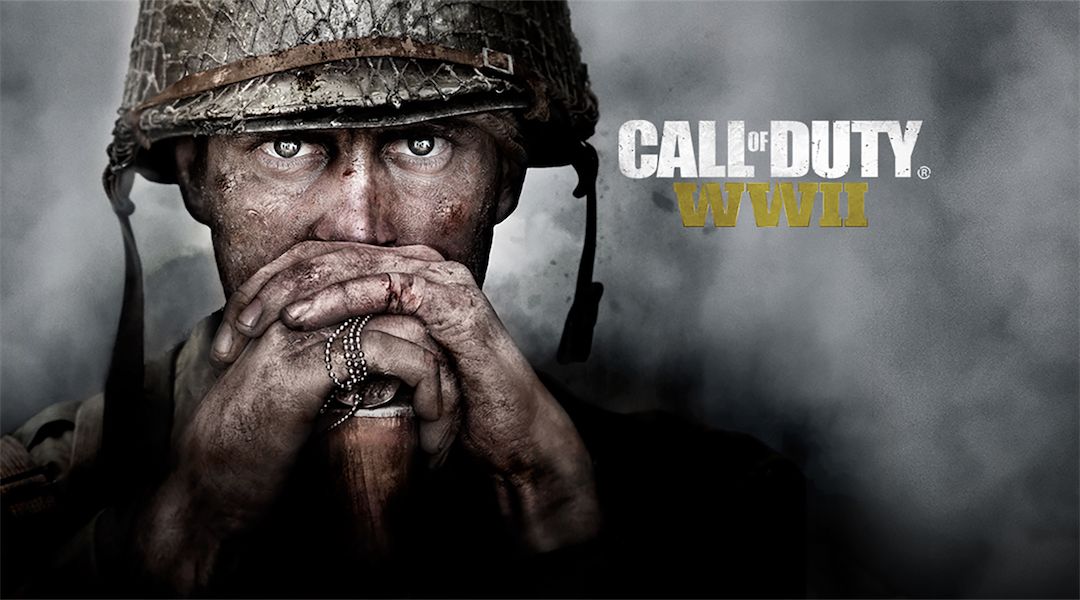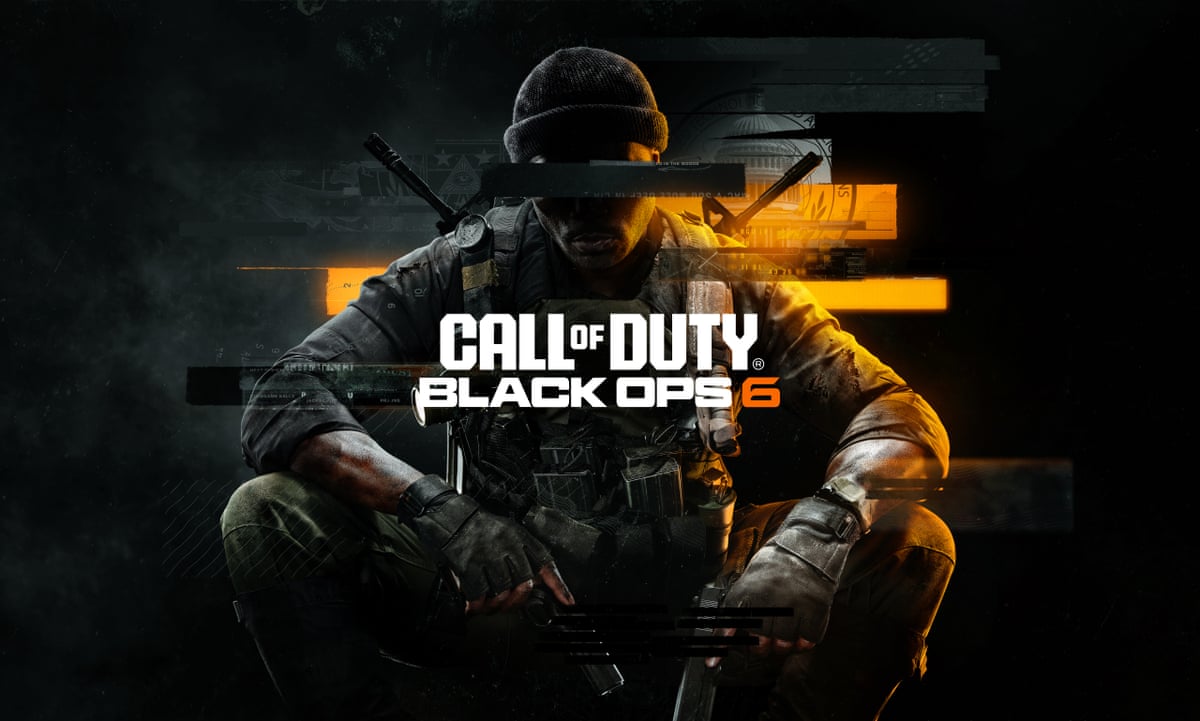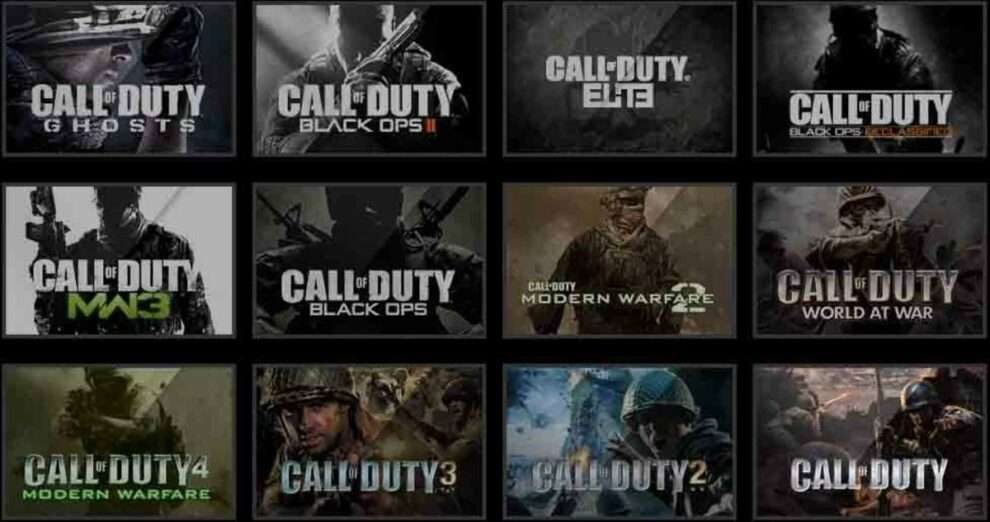Call of Duty has long been synonymous with cutting-edge technology, immersive storytelling, and groundbreaking gameplay. Since its inception in 2003, the franchise has undergone a remarkable transformation, evolving from its roots in World War II to become a pioneer of futuristic warfare. Along the way, Call of Duty has redefined the first-person shooter genre, capturing the imaginations of millions of players across generations. In this article, we’ll explore the journey of Call of Duty, tracing its progression from historical battles to interstellar conflicts, and examining what makes each era uniquely compelling.
The Dawn of Call of Duty: WWII Roots

The Call of Duty franchise began in 2003 with Call of Duty , developed by Infinity Ward. Set during World War II, the game transported players into the heart of historic battles, immersing them in the chaos of war. The series quickly gained traction thanks to its realistic portrayal of combat, intuitive mechanics, and emotionally resonant narratives. Players took on the roles of soldiers from various Allied nations, experiencing the harrowing realities of frontline warfare.
What made Call of Duty special was its emphasis on teamwork and strategy. Multiplayer modes encouraged cooperation, rewarding players who worked together to achieve objectives. Campaigns, meanwhile, delivered poignant stories that highlighted the bravery and sacrifice of ordinary men thrust into extraordinary circumstances. Titles like Call of Duty 2 expanded on these themes, introducing more diverse settings and characters while maintaining the authenticity that defined the series.
The WWII era also laid the groundwork for Call of Duty’s signature style: fast-paced action combined with cinematic storytelling. As players fought through Normandy beaches, hedgerows, and German bunkers, they couldn’t help but feel connected to the history unfolding around them. This authenticity struck a chord with audiences, establishing Call of Duty as a benchmark for military-themed games.
The Modern Warfare Trilogy: Bridging Past and Present
By the mid-2000s, the Call of Duty franchise faced a dilemma: how to maintain relevance while avoiding redundancy? The answer came in the form of Call of Duty 4: Modern Warfare , released in 2007. This landmark title shifted the focus from World War II to contemporary conflicts, taking players into the modern battlefield. Featuring state-of-the-art weapons, tactical gear, and pulse-pounding missions, Modern Warfare captured the imagination of a new generation.
The transition to modern warfare brought several key advantages. First, it allowed developers to explore more varied environments, from urban cities to remote deserts. Second, it opened up opportunities for more intricate narratives, tackling themes like terrorism, espionage, and geopolitical tensions. Finally, the shift revitalized the multiplayer scene, introducing features like killstreak rewards and customizable loadouts that became staples of the franchise.
Following Modern Warfare , two sequels—Call of Duty: Modern Warfare 2 and Modern Warfare 3 —completing the trilogy. Each installment refined the formula, pushing boundaries in storytelling, visuals, and gameplay mechanics. The series reached new heights with memorable moments like the airport massacre in Modern Warfare 2 and the tense escape sequences in Modern Warfare 3 . Together, these games cemented Call of Duty’s status as a juggernaut in the gaming world.
The Rise of Black Ops: Espionage and Superweapons

While the Modern Warfare series dominated headlines, another branch of the franchise emerged: Call of Duty: Black Ops. Developed by Treyarch, this spin-off series delved into the realm of covert operations, espionage, and government conspiracies. Launched in 2010 with Call of Duty: Black Ops , the series introduced a darker, more mysterious tone, blending fact with fiction.
Black Ops transported players into the Cold War era, pitting them against shadowy organizations and rogue agents. The game’s narrative unfolded through cryptic missions, hidden agendas, and shocking revelations, keeping players guessing until the very end. Its multiplayer component added a layer of depth with customizable perks and unique game modes, further cementing Call of Duty’s reputation as a leader in competitive play.
Subsequent entries like Black Ops II and Black Ops III expanded on these themes, incorporating futuristic elements like drones, AI, and cyber warfare. These advancements positioned the series as a bridge between past and future, bridging the gap between historical accuracy and speculative fiction. The inclusion of advanced technology also paved the way for the franchise’s eventual leap into sci-fi realms.
Breaking Boundaries: Advanced Warfare and Infinite Warfare
The mid-2010s marked a bold departure for Call of Duty with Call of Duty: Advanced Warfare and Call of Duty: Infinite Warfare . These titles represented a seismic shift, embracing futuristic settings and futuristic technology. Developed by Sledgehammer Games and Treyarch respectively, both games envisioned a world decades ahead of our own, filled with advanced weaponry, exoskeletons, and orbital combat.
Advanced Warfare introduced players to a near-future where private military companies wielded immense influence. Equipped with powered exosuits, players navigated futuristic cities and battlefields, executing daring maneuvers and executing high-stakes missions. The game’s emphasis on mobility and verticality transformed traditional combat, encouraging players to think creatively and adapt to changing situations.
Meanwhile, Infinite Warfare took the concept further by placing players in outer space. Set centuries into the future, the game depicted humanity’s expansion across the solar system, complete with zero-gravity combat and orbital assaults. While polarizing among fans, Infinite Warfare showcased the franchise’s willingness to experiment and push boundaries. These titles demonstrated that Call of Duty could thrive in imaginative settings without abandoning its core identity.
Warzone: The Ultimate Evolution

No discussion of Call of Duty’s evolution would be complete without mentioning Call of Duty: Warzone . Launched in 2020, Warzone redefined the battle royale genre, blending elements of survival, strategy, and teamwork. Set within the sprawling city of Verdansk, Warzone invites players to compete in massive 150-player matches, combining elements of traditional Call of Duty gameplay with innovative mechanics.
Warzone’s success stems from its accessibility and inclusivity. Free-to-play and cross-platform, it welcomes players of all skill levels to dive into intense, fast-paced battles. The game’s unique features, such as Gulag revivals, Buy Stations, and Contracts, inject layers of strategy and unpredictability into every match. Warzone also bridges the gap between single-player campaigns and multiplayer modes, offering a cohesive experience that appeals to both casual and competitive players.
Perhaps most importantly, Warzone has kept Call of Duty relevant in an ever-changing gaming landscape. By expanding its reach and embracing new formats, the franchise ensures its continued dominance in the competitive scene.
The Future of Call of Duty: Beyond the Horizon
Looking ahead, Call of Duty shows no signs of slowing down. With each iteration, the series pushes the envelope, exploring new frontiers and reinventing itself. Recent announcements hint at even more ambitious projects, including potential collaborations with other franchises and explorations of alternate timelines and dimensions.
One thing is certain: Call of Duty’s evolution reflects the broader trends in gaming. As technology advances and player expectations grow, the franchise adapts, delivering experiences that resonate with both nostalgia and innovation. From WWII to future warfare, Call of Duty has proven its ability to adapt and thrive, remaining at the forefront of the gaming industry.
A Legacy of Innovation
Call of Duty’s journey from WWII to future warfare is a testament to its enduring appeal and adaptability. Through each era, the franchise has maintained its core values while embracing change, ensuring its place as a cultural icon. Whether you’re drawn to historical authenticity, modern-day realism, or futuristic speculation, Call of Duty offers something for everyone.
As the series continues to evolve, one thing remains clear: Call of Duty isn’t just a game—it’s a phenomenon. And with each new chapter, it promises to redefine what’s possible in gaming. So strap in, gear up, and prepare for the next chapter in this legendary saga. The future of Call of Duty is brighter than ever, and it’s yours to conquer.
















Add Comment